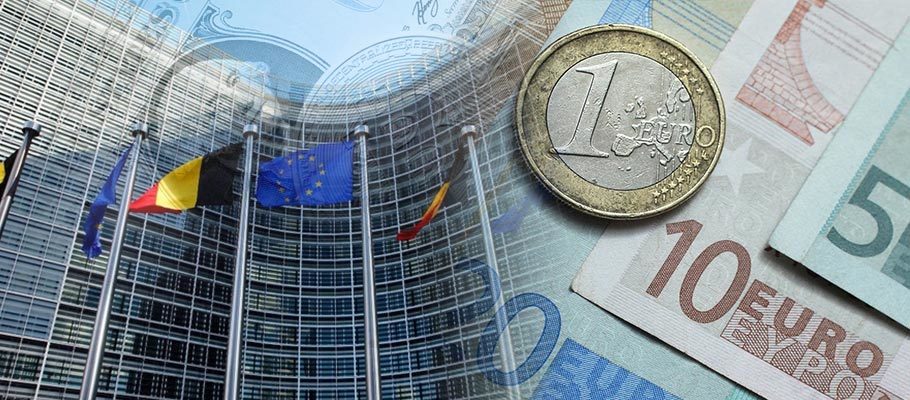
Published: January 22nd, 2021
The European Union has unveiled plans to power the euro’s international role, as the bloc looks to erode US dollar dominance and minimise vulnerability to financial risks arising from American trade and political sanctions.
The blueprint includes measures to allow greater scrutiny of foreign takeovers and provide a bulwark against currency shocks, noting that ‘the application of unilateral, extraterritorial sanctions by third countries has impacted the EU’s ability to honour international agreements, pursue foreign policy objectives, and manage relations with sanctioned countries.’
Widely seen as a response to divisive Trump-era sanctions against China and Iran, the blueprint states explicitly that such actions have harmed legitimate trade and investment by EU businesses.
The Trump administration imposed a wide range of sanctions against nations and key individuals in countries like Venezuela, China, Russia, Iran, Russia, and North Korea, impacting payment services and businesses across the world. The US state department has also kept the EU under steady diplomatic pressure to abandon plans for an alternative payment system that could shield trade between EU nation-states and countries like Iran.
The blueprint goes on to detail how Europe can strengthen its regional economic and financial resilience by spreading risk across newer markets such as green finance.
Calls have been growing for years to boost the bloc’s financial autonomy, sentiment which gained momentum under the unilateralism of the Trump regime. When the White House imposed sanctions on Iran that extended to any European banks doing business in the country, it damaged prospects for several budding trade deals with the Islamic Republic.
The EU’s new plan for the euro reflects growing pressure on Brussels by member states to advance an approach and create tools that will enable a more independent foreign policy, less exposed to unpredictable moves by the US.
‘America’s power to enforce international sanctions using the dollar’s position as the default global reserve currency has seriously derided the EU’s ability to advance foreign policy objectives and hurt legitimate trade and investment opportunities.’
Plans to raise the role of the euro were first floated by former European Commission President Jean-Claude Juncker. Faced with an unpredictable and turbulent Trump administration, Juncker asked EU policy units to find new ways to shield the bloc’s currency and economic growth. The move was prompted by Trump’s 2018 Trump pull-out from the Obama-led international accord that restricted Iran’s nuclear program.
Trump also hobbled one of the EU’s primary energy infrastructure projects, Nord Stream 2, by threatening to sanction any business involved in the project. The sanctions were seen as a naked market-share grab designed to shore up exports of American liquified natural gas (LNG) exports to Europe from the flagging US shale sector.
European Central Bank figures indicate that the euro has sustained its role as the second most-used currency in the world after the greenback. Even with the policy push, analysts believe there’s little the EU can do in terms of pure legislative changes to markedly expand global use of the euro.
The EU’s primary focus will have to be will be flagship projects unify the region’s capital markets and banking sector. Disagreements between member state governments have traditionally held back progress in that area.
EU policymakers believe their COVID recovery fund, designed to help member states come back from the pandemic-induced recession, could be a tool to help strengthen the euro. Part of a stimulus package delivering 750 billion euros in loans and grants and loans, a third of the funds have to be earmarked for green projects.
The block wants the euro to be synonymous with sustainable finance and sees the pandemic response as an opportunity to transform EU financial services into the planets premier green finance hub. If that happens, it could make the euro the default denomination for sustainable financial offers.
At the start of 2020, nearly 50 per cent of green bond issuance was denominated in euros, a figure the bloc hopes will rise. Going into 2021, the European Commission is set to issue more than 250 billion EUR in green debt.
That would put the commission on track to raise close to a trillion euros in debt by 2025, establishing it as one of the world’s largest issuers of sovereign debt with a triple-A credit rating.
Another potential game-changer is the ECB's drive to introduce a digital euro to global markets; the blueprint says that ‘additional development of Europe’s growing digital finance industry will strengthen the region’s strategic independence in financial services, and grow its ability to ensure financial stability and recognition of the bloc’s values.’
The aftermath of Brexit is also influencing EU policy in the area of financial infrastructure resilience. The commission is putting pressure on European businesses to move all or part of their derivatives-clearing operations from London to EU member cities like Dublin or Frankfurt.
Markus Ferber, vice-chair of the European Parliament's Committee on Economic and Monetary Affairs, said recently that the EU needs a ‘clear and detailed plan that helps financial sector businesses shift operations from Great Britain to the European Union. We need a proactive approach that will protect and strengthen European financial markets.’
The proposals to bolster the euro internationally come as the European Union looks to power its foreign policy and protect strategic interests around the globe as part of the broader strategy to minimise the economic impact of the COVID-19 pandemic.